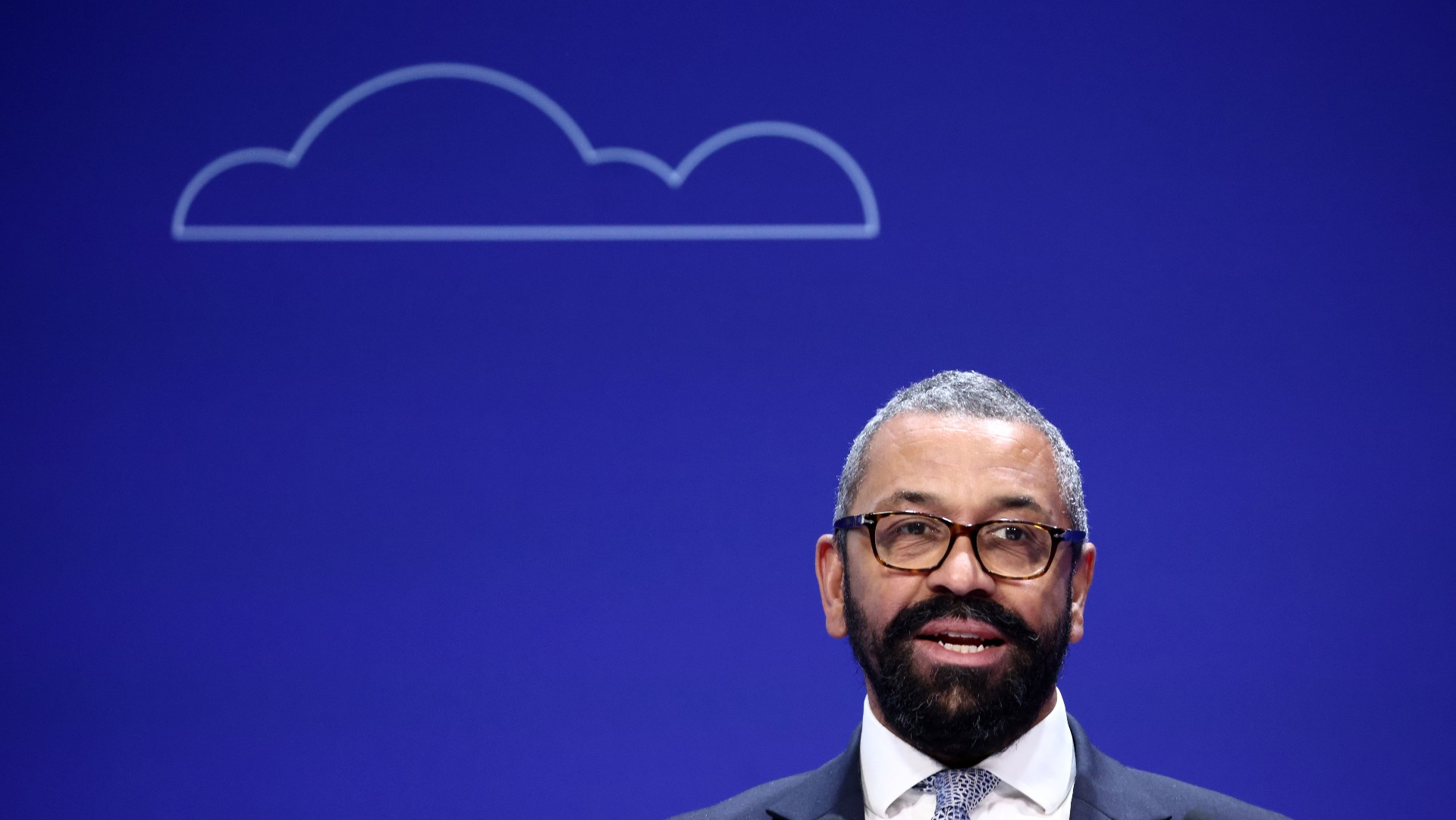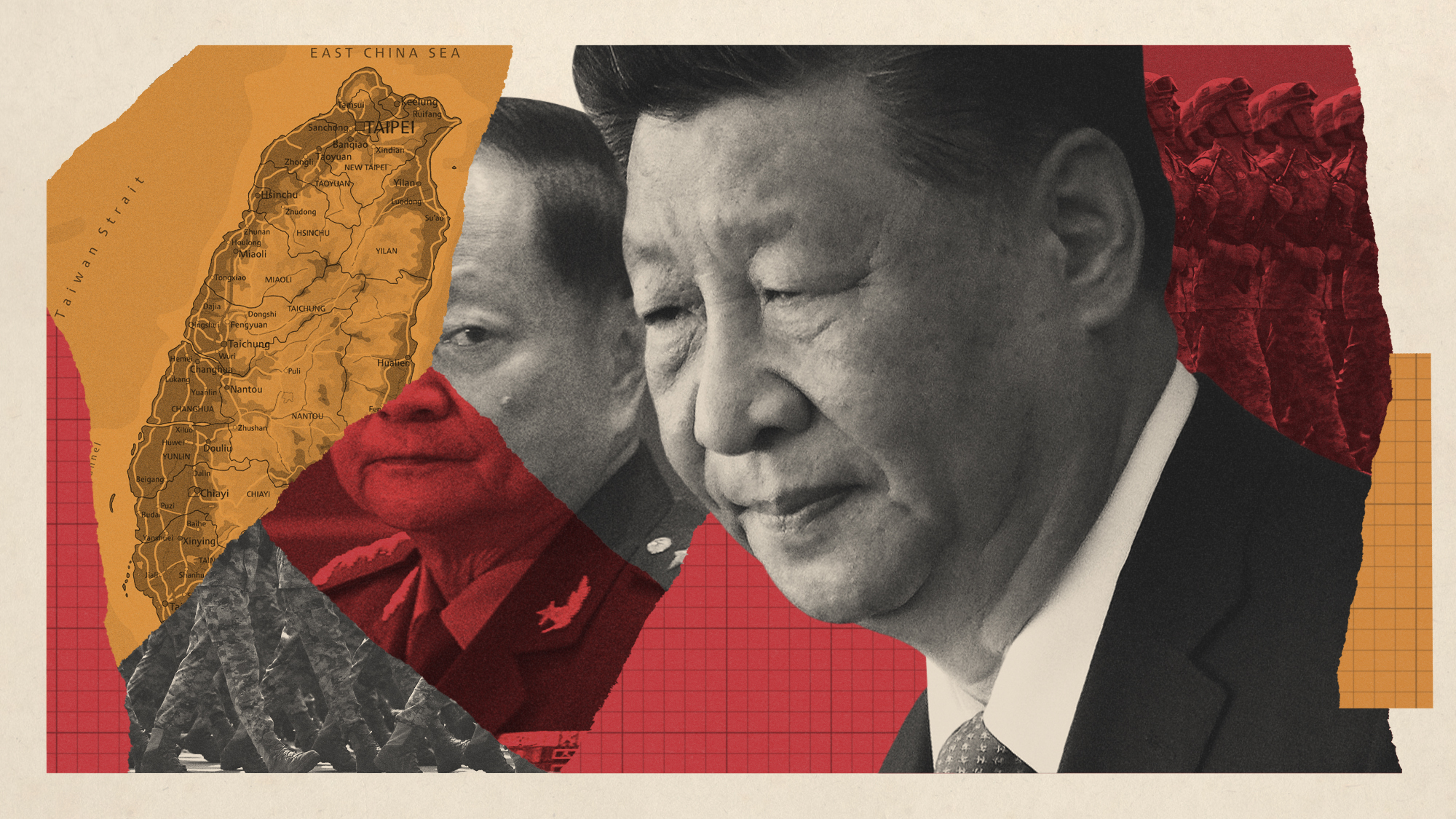Cleverly China visit: can UK pull off tricky diplomatic balancing act?
Foreign secretary’s trip is first ‘real test’ of Rishi Sunak’s new strategy towards Beijing

A free daily email with the biggest news stories of the day – and the best features from TheWeek.com
You are now subscribed
Your newsletter sign-up was successful
Foreign Secretary James Cleverly visits China on Wednesday hoping to tread a fine diplomatic line between calling out Beijing over human rights abuses and posturing over Taiwan and seeking greater cooperation on economic ties and climate change.
Originally scheduled for July before a politburo purge led to the removal of foreign minister Qin Gang, the meeting will see Cleverly become the first British foreign secretary to visit China since 2018. It “will be a test for his government’s efforts to rebalance the relationship with Beijing”, said the South China Morning Post (SCMP).
What did the papers say?
UK-China relations have undergone “huge changes” under the past five Conservative prime ministers, The China Project reported. David Cameron created the so-called “Golden Era” with President Xi Jinping to attract Chinese investment, before Theresa May paused the Chinese-backed Hinkley Point C nuclear power station while at the same time pushing to expand global trade post-Brexit.
The Week
Escape your echo chamber. Get the facts behind the news, plus analysis from multiple perspectives.

Sign up for The Week's Free Newsletters
From our morning news briefing to a weekly Good News Newsletter, get the best of The Week delivered directly to your inbox.
From our morning news briefing to a weekly Good News Newsletter, get the best of The Week delivered directly to your inbox.
Boris Johnson was pressured into banning Chinese telecom giant Huawei, but his short-lived successor, Liz Truss, adopted a decidedly more hawkish approach. She had planned to declare China a threat to British national security before she was ousted and later visited Taiwan, the island nation claimed by China, in a historic trip denounced by Beijing as “a dangerous political stunt”.
By contrast, Rishi Sunak has sought to “stabilise a turbulent relationship that has sunk to its lowest point in decades”, said The Guardian. Both the prime minister and his foreign secretary have consistently talked about the importance of dialogue with Beijing despite disagreements between the UK and China over the crackdown on democracy in Hong Kong, the handling of the pandemic, the treatment of Uighur Muslims in Xinjiang and threats made towards Taiwan.
Sunak is under “increasing pressure” from some senior Tories who are “seeking to harden London’s policy on China”, said The Guardian, but he is also “looking to shore up its diplomatic engagement and economic ties with China post-Brexit”.
This has led to somewhat mixed messaging from the current UK government. In a speech at the Lord Mayor’s banquet last year Sunak defended the need to maintain “diplomacy and engagement”, before declaring in May that Beijing poses the “biggest challenge of our age to global security and prosperity”. In a speech at Mansion House in April, Cleverly struck a more realistic tone, admitting “we must face the inescapable reality that no significant global problem – from climate change to pandemic prevention, from economic instability to nuclear proliferation – can be solved without China”.
A free daily email with the biggest news stories of the day – and the best features from TheWeek.com
It is “a balance being sought by many European countries”, reported SCMP. But with Britain no longer being part of the EU debate, a major challenge in forming a coherent strategy is in assuaging the pro-business and China-sceptic wings of the Tory party, said Ruby Osman, China lead at the Tony Blair Institute for Global Change.
Sam Hogg, founder and editor of the Beijing to Britain briefing, told City A.M. that Cleverly’s trip “will be the first time Rishi Sunak’s China strategy – engage, align, protect – meets reality”.
Top of the agenda will be attempts to lift sanctions on five Tory MPs who have been critical of China, The Daily Telegraph reported. These include former Tory leader Iain Duncan Smith and current security minister Tom Tugendhat and means they are prohibited from entering China, Hong Kong and Macau, while Chinese citizens are banned from doing business with them, “creating a host of complications”, said the paper.
Beyond that, The China Project said, “it’s hard to envisage much coming out of Cleverly’s China trip from a human rights perspective”.
Luke de Pulford, from the Inter-Parliamentary Alliance on China, told the site: “Rather, it looks a bit like Britain turning up with a begging bowl, knowing that concerns will be raised in a perfunctory way, and almost certainly swatted away by Beijing.”
What next?
Observers have “urged caution” around what could be delivered during the one-day visit “beyond setting the tone for future engagement”, reported SCMP. “Nor is it guaranteed that the trip lays the ground for Sunak to go to China.”
The PM has, however, “opened the door” to a first face-to-face meeting with President Xi at the G20 summit in India from 9-10 September, reported The Times.
Xi’s presence at the annual gathering of the world’s largest economies is not yet confirmed, said the paper, but “preparations are being made in Whitehall for a bilateral meeting in the likely event he does attend”.
-
 Political cartoons for February 19
Political cartoons for February 19Cartoons Thursday’s political cartoons include a suspicious package, a piece of the cake, and more
-
 The Gallivant: style and charm steps from Camber Sands
The Gallivant: style and charm steps from Camber SandsThe Week Recommends Nestled behind the dunes, this luxury hotel is a great place to hunker down and get cosy
-
 The President’s Cake: ‘sweet tragedy’ about a little girl on a baking mission in Iraq
The President’s Cake: ‘sweet tragedy’ about a little girl on a baking mission in IraqThe Week Recommends Charming debut from Hasan Hadi is filled with ‘vivid characters’
-
 How are Democrats turning DOJ lemons into partisan lemonade?
How are Democrats turning DOJ lemons into partisan lemonade?TODAY’S BIG QUESTION As the Trump administration continues to try — and fail — at indicting its political enemies, Democratic lawmakers have begun seizing the moment for themselves
-
 How did ‘wine moms’ become the face of anti-ICE protests?
How did ‘wine moms’ become the face of anti-ICE protests?Today’s Big Question Women lead the resistance to Trump’s deportations
-
 How are Democrats trying to reform ICE?
How are Democrats trying to reform ICE?Today’s Big Question Democratic leadership has put forth several demands for the agency
-
 What do Xi’s military purges mean for Taiwan?
What do Xi’s military purges mean for Taiwan?Today’s Big Question Analysts say China’s leader is still focused on reunification
-
 Why is Tulsi Gabbard trying to relitigate the 2020 election now?
Why is Tulsi Gabbard trying to relitigate the 2020 election now?Today's Big Question Trump has never conceded his loss that year
-
 What is at stake for Starmer in China?
What is at stake for Starmer in China?Today’s Big Question The British PM will have to ‘play it tough’ to achieve ‘substantive’ outcomes, while China looks to draw Britain away from US influence
-
 Will Democrats impeach Kristi Noem?
Will Democrats impeach Kristi Noem?Today’s Big Question Centrists, lefty activists also debate abolishing ICE
-
 Do oil companies really want to invest in Venezuela?
Do oil companies really want to invest in Venezuela?Today’s Big Question Trump claims control over crude reserves, but challenges loom